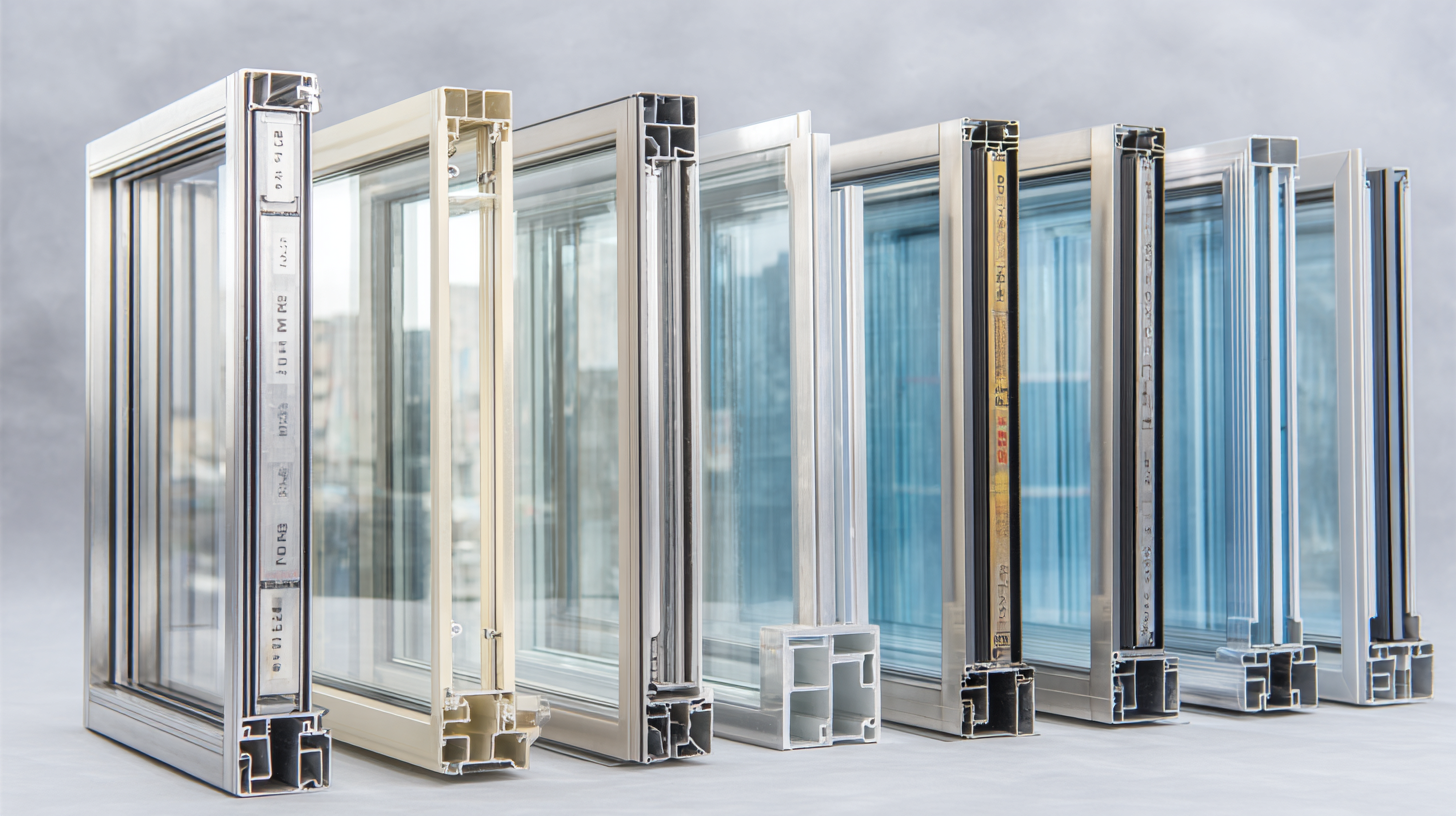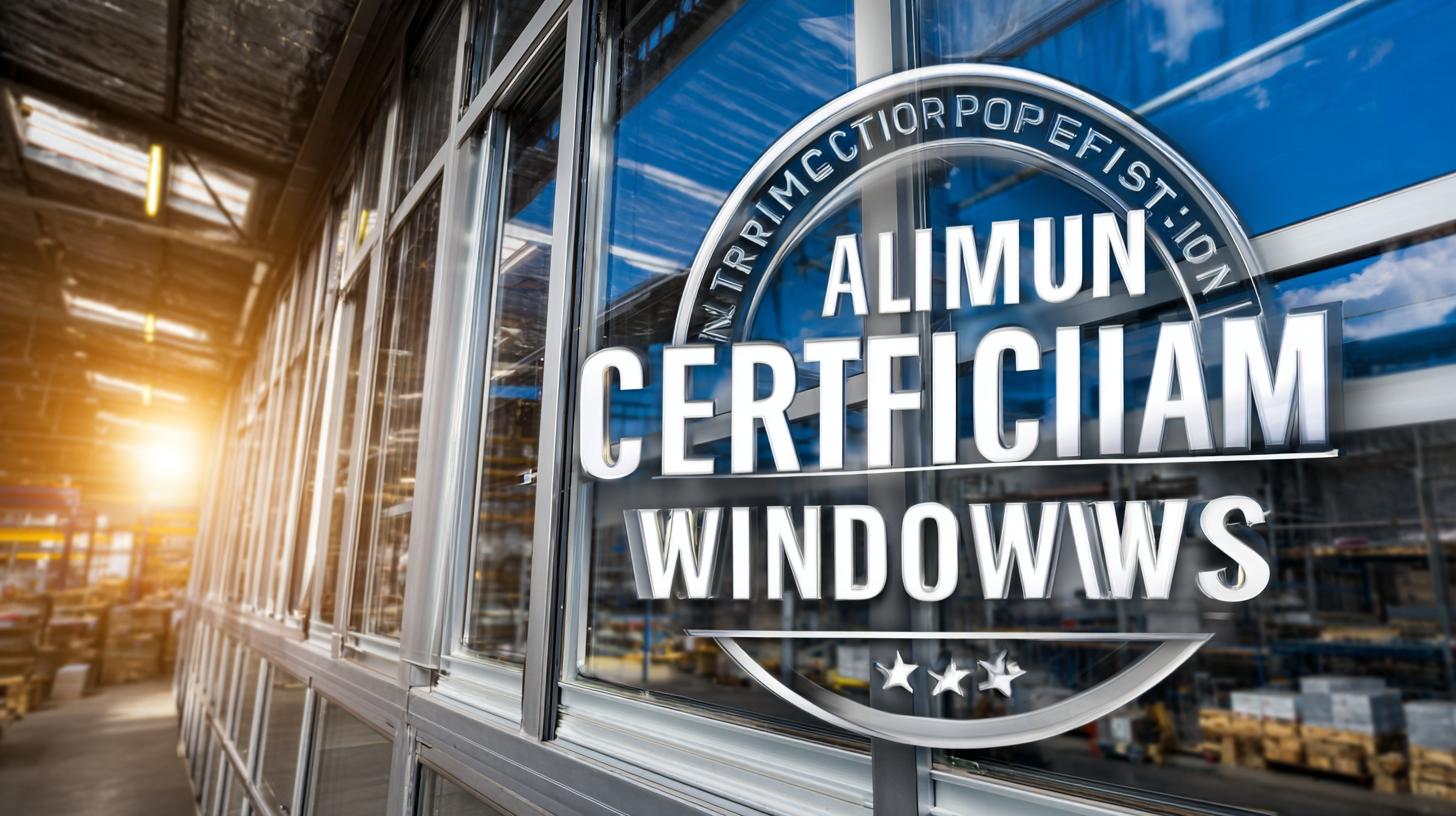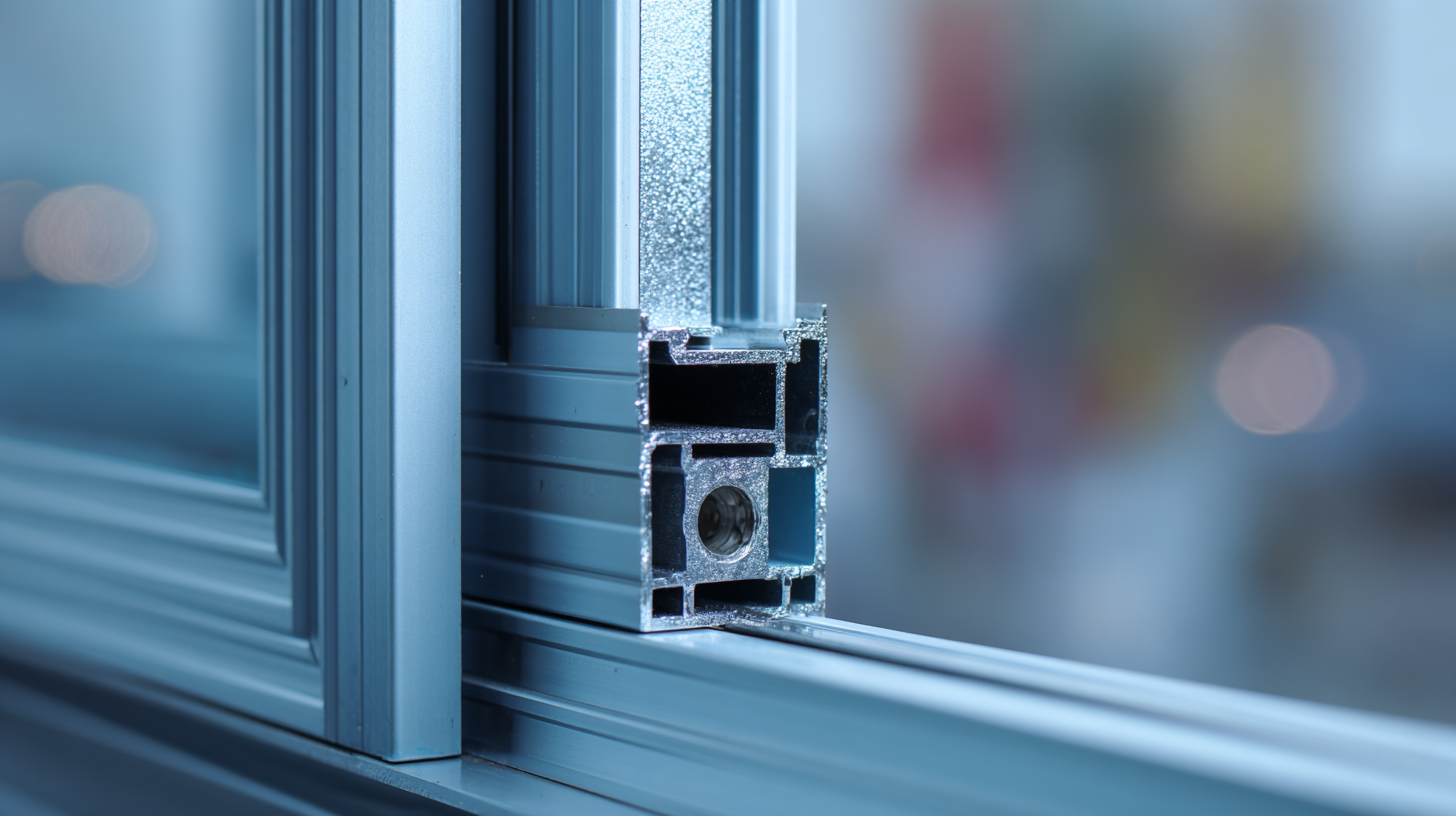
- English
- Español
- Português
- русский
- Français
- 日本語
- Deutsch
- tiếng Việt
- Italiano
- Nederlands
- ภาษาไทย
- Polski
- 한국어
- Svenska
- magyar
- Malay
- বাংলা ভাষার
- Dansk
- Suomi
- हिन्दी
- Pilipino
- Türkçe
- Gaeilge
- العربية
- Indonesia
- Norsk
- تمل
- český
- ελληνικά
- український
- Javanese
- فارسی
- தமிழ்
- తెలుగు
- नेपाली
- Burmese
- български
- ລາວ
- Latine
- Қазақша
- Euskal
- Azərbaycan
- Slovenský jazyk
- Македонски
- Lietuvos
- Eesti Keel
- Română
- Slovenski

Understanding Import and Export Certifications for Best Aluminum Windows Industry
In today's global market, understanding import and export certifications is crucial for businesses in the aluminum windows industry. As the demand for sustainable and energy-efficient building materials grows, manufacturers and suppliers must navigate a complex web of regulations and standards to ensure compliance and optimize their operations. This blog will delve into the various types of certifications required for aluminum windows, exploring why they matter not just for legality and quality assurance, but also for enhancing global competitiveness. By breaking down the essential certification processes and the underlying reasons for their importance, we aim to equip industry stakeholders with the knowledge necessary to thrive in a competitive landscape. Join us as we uncover the key factors that influence the successful import and export of aluminum windows, setting the stage for informed decision-making and strategic growth.

Key Import Certifications for Aluminum Windows: Ensuring Quality and Compliance
When it comes to the aluminum windows industry, understanding key import certifications is crucial for ensuring both quality and compliance. With the European windows and doors market projected to grow from USD 59.09 billion in 2024 to USD 82.15 billion by 2033, the demand for high-quality aluminum products is on the rise. Import certifications serve as a benchmark for manufacturers, assuring domestically and internationally sourced products meet stringent quality standards. This creates a competitive landscape where only those adhering to these regulations can thrive.
Recent advancements, such as the BIS amendment order on aluminum and aluminum alloy products, underscore the importance of quality control in the importation process. Manufacturers need to navigate these regulations effectively to enhance their market position. Compliance with these import certifications not only ensures product integrity but also protects consumers from subpar materials. As the market evolves, staying informed about these certifications will be vital for industry stakeholders aiming to maintain excellence in aluminum window manufacturing.
Understanding Export Requirements: Navigating Global Standards for Aluminum Products
Navigating the global standards for aluminum products can be daunting, especially for businesses looking to export their aluminum windows.
Various countries have specific regulations and certifications that must be adhered to in order to ensure compliance and meet customer expectations. It's essential to familiarize yourself with these export requirements to avoid costly setbacks in your supply chain.
Tip: Always conduct thorough research on the destination country’s import regulations. This not only includes understanding specific certification requirements but also the necessary testing standards for your products. Engaging with local industry associations can provide valuable insights into the market landscape.
Furthermore, understanding the environmental standards associated with aluminum production and exportation will enhance your competitiveness. Many countries require that aluminum products meet sustainability criteria, which is increasingly becoming a focal point for consumers. Staying ahead by adopting best practices in sustainability can significantly enhance your brand's reputation.
Tip: Consider obtaining internationally recognized certifications such as ISO 14001 for environmental management. This can not only streamline your compliance with export regulations but also attract eco-conscious customers in a crowded marketplace.
The Role of Environmental Certifications in the Aluminum Window Industry
 In the aluminum window industry, environmental certifications play an increasingly vital role in meeting both regulatory requirements and consumer demand for sustainable products. According to a report by the Aluminum Association, certified aluminum products can reduce greenhouse gas emissions by approximately 20% compared to non-certified alternatives. This statistic underlines the importance of choosing aluminum windows that comply with recognized environmental standards, such as LEED and Energy Star, which not only enhance the product's credibility but also minimize the ecological footprint of construction projects.
In the aluminum window industry, environmental certifications play an increasingly vital role in meeting both regulatory requirements and consumer demand for sustainable products. According to a report by the Aluminum Association, certified aluminum products can reduce greenhouse gas emissions by approximately 20% compared to non-certified alternatives. This statistic underlines the importance of choosing aluminum windows that comply with recognized environmental standards, such as LEED and Energy Star, which not only enhance the product's credibility but also minimize the ecological footprint of construction projects.
Tips: When selecting aluminum windows, always look for certifications that align with your sustainability goals. Researching the certifications can provide insights into the manufacturing practices and energy efficiency of the products.
Furthermore, the demand for green building materials has surged, with a recent study indicating that 70% of architects and builders prioritize environmentally certified materials. This trend highlights the competitive edge that environmentally compliant aluminum windows can offer. By investing in certified products, manufacturers and consumers alike contribute to a healthier environment while also fulfilling market expectations.
Tips: Collaborate with suppliers who prioritize sustainability in their production processes. This partnership can lead to innovative solutions and help ensure that your choices support long-term environmental goals.
Alternatives to Traditional Certifications: Innovative Approaches for Export and Import
In today's competitive aluminum windows industry, companies are increasingly seeking innovative approaches to certification for import and export. Traditional certification processes can be lengthy and bureaucratic, often hindering business operations. As such, stakeholders are looking towards alternative methods that prioritize efficiency and sustainability. For instance, integrating digital documentation and utilizing blockchain technology can streamline verification processes, ensuring compliance while reducing administrative burdens.
When considering alternatives to conventional certifications, companies can benefit from the latest innovations in eco-friendly materials and production methods. Just as eco-textiles are revolutionizing the fashion industry by incorporating bio-based and recycled materials, aluminum window manufacturers can explore using sustainable resources and eco-efficient techniques. This not only enhances their market appeal but also aligns with global trends toward sustainable practices.
**Tips:** Firstly, invest in research and development to find materials and methods that improve your product's sustainability. Secondly, consider collaborating with tech companies that specialize in digital verification processes to simplify your certification journey. Lastly, stay informed about market trends; understanding customer preferences related to eco-conscious products will help you align your certifications with consumer demand.
Understanding Import and Export Certifications for the Aluminum Windows Industry
Impact of Certification on Market Competitiveness in the Aluminum Windows Sector
In the competitive landscape of the aluminum windows industry, certifications serve as a critical differentiator. Manufacturers who invest in obtaining import and export certifications demonstrate compliance with international quality standards, which can significantly enhance their market presence. These certifications reassure consumers regarding product performance, durability, and environmental impact, thus boosting brand credibility. In an industry where differentiation often comes down to trust and reliability, having the relevant certifications can mean the difference between a customer choosing one brand over another.

Moreover, certifications can also affect pricing strategies and supply chain dynamics. Companies that hold recognized certifications often have better access to international markets, enabling them to expand their customer base and increase sales. This competitive edge not only justifies a premium pricing model but also positions certified manufacturers as industry leaders committed to quality and sustainability. As the market evolves, embracing certification processes becomes essential for businesses aiming to maintain resilience and adaptability in a constantly changing global market.